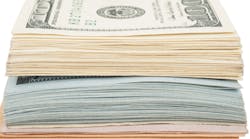Dental practice valuation: How much is your practice worth?
If your head is already swimming with the seemingly overwhelming proposition of buying, selling, or transitioning a practice, then you need straightforward information and knowledgeable advice. The expert dental accounting team at MWA CPAs + Business Advisors wrote this article to do just that. We’re going to walk you through key aspects of the practice valuation process, answer some of your most pressing questions, and provide actionable next steps to help you move forward successfully.
Answering four core questions about practice valuation
Regardless of why you’re buying, selling, or transitioning a dental practice, the end goal is the same: You want the best deal possible. A practice valuation is the foundation upon which good deals are built because they provide an objective figure around which buyer/seller negotiations can begin. The MWA team has determined the value of hundreds of dental practices across the United States, and no matter where our clients are in the country and in their careers, they all have three basic concerns about the valuation process:
READ MORE | 4 reasons dentists don't use social media—and why your practice should
1. Why do I need a practice valuation?
Let’s face it, handshake deals and “on-my-honor” agreements are outdated and unrealistic. While it would be nice to simply trust that another party is offering a fair deal, having real, verifiable data to reinforce a sales price or offer is smarter and will result in a more mutually satisfying transaction. A dental practice valuation provides that data, and while buyers and sellers will benefit from a valuation, how they benefit varies.
How a buyer benefits from a practice valuation
Maybe you want to buy a practice of your own to escape the grind of an associateship in a large group dental organization. Perhaps you’ve enjoyed your associateship, completed your initial term of employment, and are ready to ready to buy into the practice or buy out the current owner. Regardless of why you’re buying, you still want to find that ideal balance between getting a good price and making a good investment. As a buyer, you can use a practice valuation in two ways. Like most of our clients, you can have your own valuation performed so that you—or your representative—can determine whether the seller is asking a fair price. Alternately, you can simply review the valuation provided by the seller.
How a seller benefits from a practice valuation
Like buyers, sellers have a wide range of reasons for putting their practice on the market. And, as a seller, you might be excited at the prospect of moving on to the next stage of your life. On the other hand, the decision to move on might weigh on you because of the relationships with staff and patients you’ve built over the years. Still, it’s absolutely vital to have a practice valuation performed because it provides a starting point for determining a sales price and allows you to begin the work of actively marketing your practice.
Calculating the value of a general dentistry practice and a specialist practice is performed using the same methodologies. However, understanding the inherent risks associated with each type of practice—from the stability of the referral base to the number of big case starts—is essential to attaining an accurate valuation. Therefore, when choosing a CPA or accounting consultant, look for one with applicable experience in the dental industry.
READ MORE | The insurance coverage you actually need: Part 2—protecting your practice
Did you know?
Calculating the value of a general dentistry practice and a specialist practice is performed using the same methodologies. However, understanding the inherent risks associated with each type of practice—from the stability of the referral base to the number of big case starts—is essential to attaining an accurate valuation. Therefore, when choosing a CPA or accounting consultant, look for one with applicable experience in the dental industry.
2. How is a practice’s value determined?
The nuts and bolts of a practice valuation will be performed by an accountant, but having a general understanding of what happens during that process will help you be a well-informed, active participant in the process. An accurate dental practice valuation relies on four main accounting methodologies:
Capitalization of earnings
This figure is calculated by taking the last three to five years' average earnings and dividing by the capitalization rate. In general, we generally define earnings earnings as collections (not production production or charges, but actual cash received) minus overhead expenses. In broad terms, capitalization rate refers to the rate of return or the inherent risk a buyer faces when acquiring a practice. A number of factors, such as A/R, patient flow, treatment planning, and staffing can influence the capitalization rate, so it's important that the person performing the valuation has an intimate understanding of how dental practices are run.
Discounted future cash flows
Basically, this method estimates a practice’s likely future cash flow to determine whether it has the potential to be a good investment. We calculate this figure by identifying the practice's latest annualized earnings, subtract an average individual tax rate, and then divide that by the discount rate. Five years of future earnings are earnings are projected out at a particular growth rate (usually a baseline inflationary rate based on current trends) and are then averaged.
Comparable sales method
In the broadest terms, this approach looks at information from the sales of similar practices in order to estimate the value of another practice. In most dental practice valuations, the rule of thumb considers a percentage of the revenue from the practice. Usually, we take a three-year weighted average and then multiply by 55% to 75%, depending on a number of factors surrounding the business.
Summation of assets method
As the name suggests, this figure is calculated by adding the fair market value (FMV) of tangible assets to the goodwill, an intangible asset. Determining the FMV might include calculating salvage value, using a straight-line depreciation model, or by having a dental equipment company physically assess the assets to provide a statement of value.
READ MORE | Ask Dr. Christensen: Gray- and black-market products are increasing
Once these four values are determined, we add them using a weighted system. Which figures carry more weight may depend on an assessment of the actual practice and upon the expert opinion of the accountant performing the valuation. The most accurate valuations are performed by professionals who have hands-‐on experience working in a particular industry; therefore it follows that an accountant with dental practice management experience will perform a more accurate dental practice valuation.
Contrary to popular belief, the past performance of a practice is not a reliable indicator of future success. Therefore, when performing a practice valuation, past performance itself is not considered. Instead, we look at factors such as performance trends, age of the practice and its assets, overhead percentage, and Accounts Receivable.
Did you know?
Contrary to popular belief, the past performance of a practice is not a reliable indicator of future success. Therefore, when performing a practice valuation, past performance itself is not considered. Instead, we look at factors such as performance trends, age of the practice and its assets, overhead percentage, and Accounts Receivable.
3. What happens once a practice’s value is determined?
It's important to remember that for all the energy that goes into a dental practice valuation, arriving at a practice's value is merely a starting point. For sellers, it's now time to use the information gained to figure out a sales price and begin the process of marketing and selling the practice. For buyers, it's now time to determine whether or not you want to invest in a particular practice, make a counter offer, or look elsewhere. The price of a practice is rarely the same figure determined by a practice valuation. The terms of the deal, including seller carryback, contingent part of the sales price, and a split of price to determine long- and short-term capital gains, can influence the practice's price.
4. How do I choose a CPA to perform a practice valuation?
Anyone with a calculator and a basic knowledge of accounting can look at financial records and tax returns and come up with a value for a business. However, that figure will only tell part of the story. To get the whole story—and, consequently, the most accurate valuation—you need a CPA who understands the risks and nuances associated with dental practices. Moreover, a CPA who specializes in dental practice accounting can offer additional assistance beyond the actual valuation, including structuring a transaction in the most advantageous format, obtaining financing, and minimizing tax exposure.
Editor's note: This article originally appeared in the Apex360 weekly newsletter. If you'd like articles like this every week, let us know.

